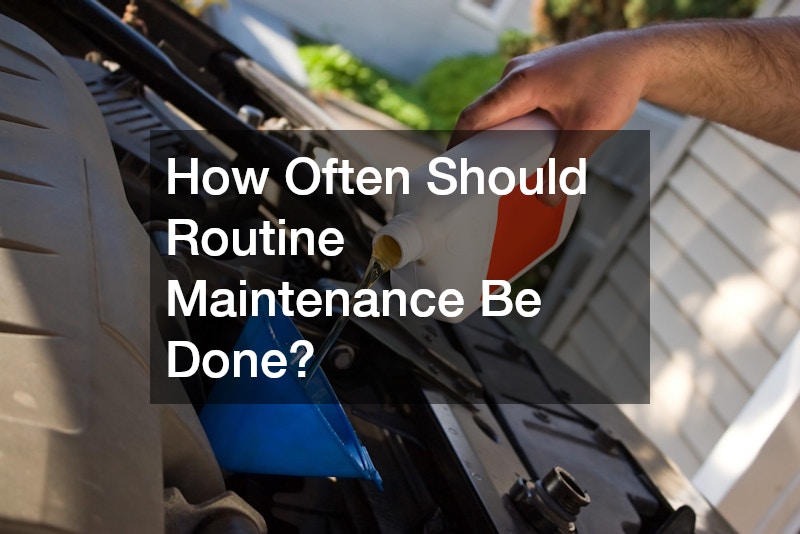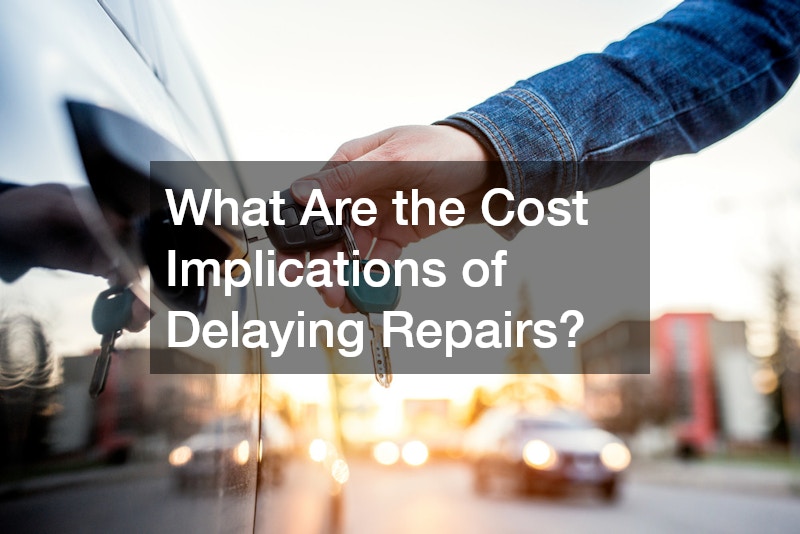Timely car repairs are essential for maintaining both safety and performance, helping car owners avoid costly long-term issues. This article delves into the importance of immediate repairs, covering common concerns and answering key questions about the effects of delaying necessary maintenance. Each section outlines critical aspects of auto repair, equipping car owners with valuable knowledge to make informed decisions. For anyone seeking answers about repairs, warranties, and choosing an auto shop, this guide serves as a comprehensive resource.
1. Why is Prompt Auto Repair Crucial?

Safety is the top priority in any driving experience, and addressing repair needs as soon as they arise is essential to prevent hazards. For example, regular visits to auto body repair garages can address minor issues before they escalate. Ignoring repairs can put drivers and passengers at risk, as seemingly minor problems can lead to severe malfunctions on the road.
By getting repairs done promptly, you also prevent further damage to the car. Small issues left unaddressed may lead to larger, costlier repairs. Timely repairs also help maintain the vehicle’s value. When you eventually decide to sell, a well-maintained vehicle attracts higher offers, as prospective buyers are more inclined to purchase a car with minimal issues. Routine repairs and maintenance are key to extending the lifespan of any vehicle.
2. What Happens if You Ignore Car Problems?
Ignoring car problems can have immediate and lasting effects. For instance, a cracked or chipped windshield can quickly worsen, eventually requiring a complete windshield replacement instead of a simple repair. In many cases, delays lead to damage that spreads to other areas of the vehicle, making it costlier and more complicated to fix.
In the long term, neglecting repairs can lead to structural damage that compromises the vehicle’s performance. Issues such as worn-out brake pads, neglected engine repairs, and poorly functioning lights can place undue stress on other components, affecting your car’s overall reliability. An auto repair disclaimer often warns of the risks associated with delay, emphasizing the potential danger to drivers and passengers alike.
3. How Do Car Repairs Affect Your Warranty?

Car warranties generally protect new vehicles from unexpected repair costs within a certain timeframe, but specific conditions apply. Failing to follow recommended repair guidelines can void your warranty. For instance, if your Porsche repair or any other brand-specific repair isn’t done in compliance with the manufacturer’s instructions, you could risk losing warranty coverage.
Another key factor to consider is whether you choose dealer repairs or independent auto shops. While independent shops can offer more affordable services, using unauthorized garages may void parts of your warranty. Reading the auto repair disclaimer in your warranty is essential to ensure compliance and keep your coverage intact.
4. What Are the Signs That You Need Immediate Car Repair?
Being attuned to warning signs is one of the best ways to prevent larger, costlier issues. Warning lights on your dashboard, such as the check engine light or oil warning light, should never be ignored, as they often indicate a need for auto body work or engine assessment. Additionally, if you notice unusual noises, it could signal engine trouble or brake system problems, both of which require immediate attention.
Performance issues, such as reduced power or sluggish acceleration, are also signs of potential trouble. Addressing these symptoms promptly ensures that your car continues running smoothly and reduces the risk of sudden breakdowns.
5. How Often Should Routine Maintenance Be Done?

Routine maintenance is critical for a well-functioning vehicle, and most manufacturers recommend regular check-ups based on mileage or time intervals. These recommendations help you keep essential components, such as brakes and tires, in optimal condition. It’s also essential to address repairs related to car insurance claims promptly, as waiting too long may affect the compensation you receive.
Routine maintenance items, such as oil changes, tire rotations, and brake checks, are small investments that prevent larger issues. Many warranties and auto repair disclaimers highlight the importance of following a regular maintenance schedule to avoid complications or voided warranties.
6. How to Choose the Right Auto Repair Shop?
Choosing a reliable repair shop can save you from additional costs and potential scams. Reviews and ratings from previous customers offer valuable insights, so reading them is a great starting point. Certified auto collision centers with positive reputations are often more trustworthy, as certification demonstrates adherence to industry standards.
The expertise of the shop’s technicians is another important factor. Look for shops that employ certified and licensed professionals. Additionally, auto repair disclaimers often emphasize verifying the shop’s insurance and licenses, as this protects you in the event of damages or poor-quality repairs.
7. What Are the Cost Implications of Delaying Repairs?

Delaying repairs generally leads to increased repair costs over time. For example, ignoring minor issues with the wheels may eventually require a full car wheel repair service, which could be more expensive than an initial fix. The longer you wait, the higher the chance that minor repairs will escalate into major repairs.
Major breakdowns often result from neglecting small issues, and these breakdowns are not only costly but also inconvenient. An auto repair disclaimer usually compares immediate costs with deferred repair costs, highlighting that immediate repairs often save money in the long run. Proactive maintenance ultimately saves you from hefty repair bills down the road.
8. What Are Common Types of Car Repairs?
Auto repair shops handle various common repairs, including engine and brake system repairs. Engine repairs often address issues related to wear and tear, oil leaks, or overheating, which can compromise your car’s performance. Local auto body repairs can fix visible damage, while brake system repairs ensure that your vehicle remains safe to drive by providing optimal stopping power.
Electrical system repairs, such as fixing faulty headlights or power windows, are also frequent, as electrical components experience wear over time. Addressing these issues promptly ensures the overall safety and functionality of your vehicle.
9. How Can You Avoid Scams in Auto Repair?
Auto repair scams can be costly and frustrating, but with awareness, you can avoid them. One common scam involves unnecessary transmission services, where a shop might claim that your transmission needs repairs even when it doesn’t. Researching potential shops and reading reviews helps you identify reputable service providers and avoid those that engage in dishonest practices.
Always get a written estimate before agreeing to any repairs. This documentation protects you from unexpected costs and gives you an idea of what to expect. Auto repair disclaimers often outline your rights, providing additional peace of mind and helping you make informed choices.
10. What Role Do Auto Repair Disclaimers Play?
Understanding auto repair disclaimers is essential, as they outline the shop’s responsibilities and liability in case of issues. These disclaimers often clarify that certain damages are not covered under their standard warranty or repair guarantees. Additionally, disclaimers help protect the shop from liability in case customers misuse the vehicle or fail to follow maintenance recommendations.
Auto repair disclaimers may include clauses related to car for rent situations, where repair delays or additional services might impact rental agreements. Knowing these terms and conditions helps customers avoid unexpected fees or misunderstandings, making them essential reading before any repair work.
Getting timely car repairs is essential to ensure safety, maintain performance, and avoid escalating repair costs. Addressing issues as soon as they arise helps you avoid long-term damage and protect the vehicle’s value. By being proactive, you reduce the chances of experiencing major issues that could lead to costly breakdowns and prolonged repair times. Understanding auto repair disclaimers also provides valuable insight into what to expect from service providers, helping you make well-informed decisions.